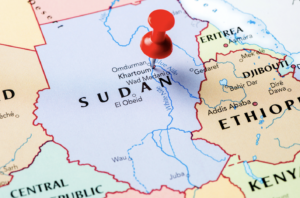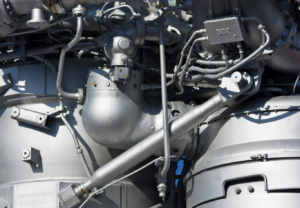Anúncios
If artificial intelligence works as planned, Felix Collins will be able to raise insects more profitably
Anyone with a severe phobia of insects should not apply for Felix Collins’ position.
He is in charge of twenty million black soldier fly larvae as the creator and leader of Full Circle Biotechnology.
Anúncios
The firm’s tiny indoor facility is located on the outskirts of Bangkok, and it rears the insects there to provide animal feed for the shrimp and pig farms across the nation.
The larvae, which thrive in dimly lit, warm, and damp conditions, consume produce scraps collected from restaurants and grocery stores. After their larval stage, they are collected and mixed with mushrooms and probiotic bacteria.
Anúncios
Mr. Collins claims that compared to the market-dominant animal feeds made from soybeans, this product is better for the environment. Deforestation in South America has been frequently associated with the latter.
And he asserts that the company’s insect-based feed is “100 times lower than that of soymeal” in terms of carbon impact.
The carbon footprint of insect-based feed is often smaller, according to studies. However, this is only the case if the larvae are fed natural food waste. One study found that feed made of soybeans reduced carbon emissions when fed to insects that had previously consumed processed foods.
According to Mr. Collins, Full Circle’s feed is more satisfying and healthy than soy since it provides up to 70% protein instead of less than 50%.
Larvae of the black soldier fly are a healthy way to get protein
With 14 employees and 49 farms served around Thailand, Full Circle has come a long way since its 2019 founding. The present low price of feed made from soybeans is a problem for its ambitions to raise this.
One European study from earlier this year found that insect-based feed costs €1,400 per tonne, whereas soybean feed is at about 460 euros ($490; £400).
Full Circle is using AI to optimize production while reducing costs in an effort to minimize the price of its feed. This is achieved by continually refining the best ways via the training of an AI system that studies all available data on insect farming, both historical and contemporary.
Factors such as feeding amount, temperature, ideal area for larvae, ability to count thousands of flies properly, and introduction of new species or strains are all part of the equation.
“AI can help us speed up the process of trial and error, helping us overcome obstacles, and develop a thorough enough understanding of insect production, to be reasonably confident that our production is optimised,” he adds.
“AI can help us process, record and understand every attempt at insect farming to date, and expand the potential for a larger and more nutritious crop every time we grow one.”
Ads around AI-related news articles
Similarly, Cogastro, a software supplier for insect farms located in Lithuania around 5,000 kilometers distant, is developing an AI-based solution. With the AI enhancement, the system will be able to learn, adapt, and make adjustments autonomously within an insect farm, in addition to collecting data automatically for users to analyze.
Cogastro has said that it would not be hasty in releasing the AI, but rather aims to do it commercially within the next three years.
Mante Sidlauskaite, the company’s founder and CEO, has expressed her skepticism toward rivals in the industry that boast about having fast access to AI systems. We have been here for five years, so we know from experience that developing a software layer is a lengthy process.
It has taken us time to work with as many companies as possible globally, to understand the differences and similarities of their processes, so that we could standardise our data models to cover their overlapping needs,” Mante Sidlauskaite said, expressing her concern that some firms overstate their use of AI. We can now begin to construct an AI solution using this foundation.
“But when we see start-ups coming up just yesterday, and then announcing that they have something related to AI, they cannot have an accurate AI model before they start to train it, and to train it, you need to have some data, and to have data you need to have some customers first.”
Furthermore, she expresses her worry about companies using AI as a catchall without providing concrete examples of how it purportedly operates.
During the breading process, black soldier flies display a territorial attitude
Now we’re back at Full Circle, where we’re working with Simon Christofides, an AI specialist from Singapore, to create our system.
Since industrial farming of black soldier fly larvae has just begun in the last fifteen years, according to Mr. Collins, there is a lot to learn, and artificial intelligence may help to speed up this process.
“Rice farmers are still trying to create the perfect crop after 13,500 years of passed down generational learning,” according to him. “Black soldier fly larvae have been farmed for 0.1% of the time rice has been grown, and that’s reflected in our current understanding.”
In addition, according to Mr. Collins, the company’s plan is to use AI to analyze millions of data points and gather insights that “no human could ever achieve” via the use of various sensors.
Still, he chimes in that it’s sometimes best to let the flies deal with their problems independently. Example: when flies reach sexual maturity, they mate using green ribbons arranged in a manner that takes their territorial instincts into consideration.
“You need to consider their social and behavioural dynamics as animals,” he adds.







